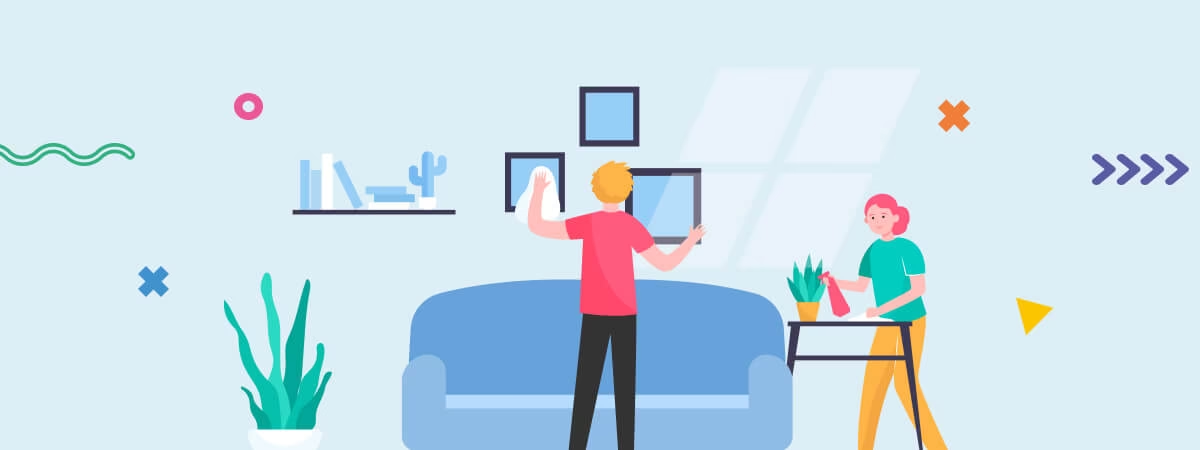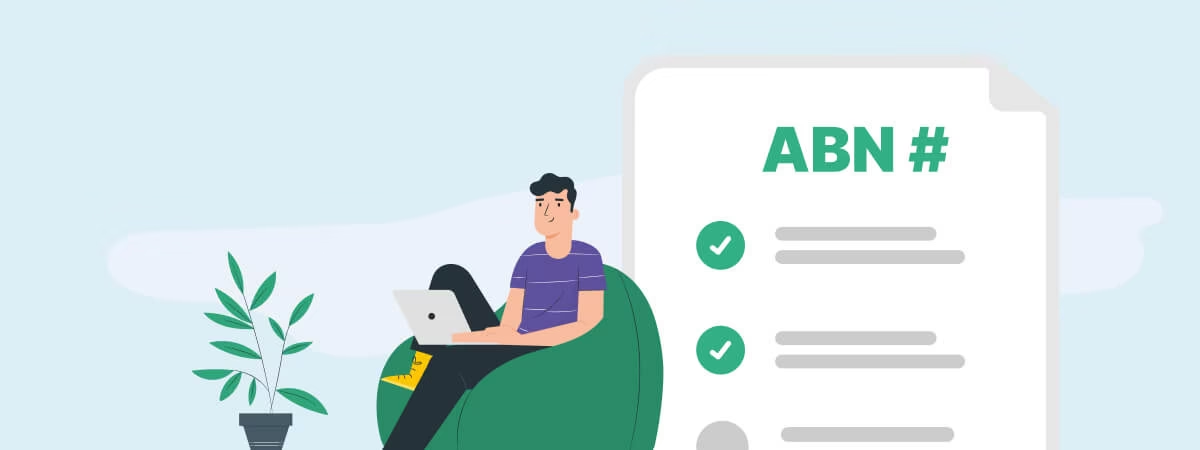Ok, so you’ve made the decision: you want to become an independent support worker. Step one achieved. But now, you’re probably wondering how to actually get started, and fair enough! This area can be a bit of a minefield – in part because when you become an Independent Support Worker, you’re effectively a sole trader who is launching their very own business.
Pretty cool, huh?
To help you kickstart your new career, we’ve created this guide to walk you through the most important bits you need to know, from what services you can provide, to whether or not you need an ABN. And of course, because we’re Hnry, we’ve even got a section that’s just about the tax stuff.
- What is the NDIS?
- How can you get started?
- What kind of services can you provide?
- How to earn an income as an independent support worker
- Business requirements
- Marketing your business
- Sole trader taxes
- How Hnry makes it easier
The National Disability Insurance Scheme
Let’s start with the National Disability Insurance Scheme (better known as the NDIS). The NDIS is a scheme, as the name suggests, implemented by the government to provide funding for eligible candidates (people with disabilities) depending on their individual needs and circumstances. It’s designed to give participants discounted or free access to support systems and assistance.
The scheme allows candidates to have more time with their friends and families, learn new skills, volunteer, and have a generally better quality of life, all through funding. It also connects these individuals with service providers and self-employed support workers (like you!), local doctors, sporting clubs, libraries, and support groups, etc.
The NDIS supports over 500,000 Australians living with disability so they can gain access to the support they need. It’s a pretty fabulous scheme!
How can you get started?
Now you’ve made that first decision, it’s time to take a look at your skills and eligibility for this type of role. NDIS support workers are recommended to have a relevant qualification. As a baseline, you’ll want to have a Cert III in one of the following areas under your belt:
- Individual Support
- Community Services
- Youth Work
- Mental Health
- Allied Health Assistance/Health Services Assistance
Got one? Phew! If you don’t, it’s no biggie whatsoever. All of these courses are available to study through TAFE, and your local institution will be able to provide you with information on the best fit for you, depending on what it is you want to do as an independent support worker.
What kind of services can you provide?
There are heaps of ways you can help people who are living with a disability.
However, it’s good to be aware that NDIS plans and funding will differ from candidate to candidate, based on their individual needs. There may be more work available for more popular services.
You might find one or more services that feel like a good fit for you and that you believe could help make a difference in someone’s life. Here are a few suggestions:
- Helping with personal care like getting dressed or taking a shower
- Providing home care services such as cleaning the kitchen or lending a hand in the garden
- Helping with access to health and wellness activities, like going for a walk, doing yoga or visiting the beach
- Assisting with speech or physio as a form of therapy
- Mentoring and helping build life skills like goal setting or studying
- Offering social assistance by taking someone to events or helping them meet new friends

How to earn an income as an Independent Support Worker
Now you probably want to understand what kind of money you will earn in this new phase of your career. There are some boundaries around this, and if we’re being honest, it actually makes your life a little easier. The NDIS has a set of Pricing Arrangements and Price Limits – these show the max you can charge per provider item. You and the participants you work with are totally welcome to bargain for lower rates, that’s both of your rights, but you can’t fight for higher rates. These are capped, but don’t stress, the NDIS update these regularly.
There are a few things to consider before landing on your set rates. Like how experienced you are in the service you’re about to provide – if you’re just starting out, you may feel more comfortable on slightly lower rates while you build experience.
You’ll also want to think about the costs that you might incur depending on the service you’re providing. For example, if your service requires you to be in the car for the majority of the time, you’ll want to consider the cost of petrol inclusive in your rate.
Tl;dr: there are different factors you need to consider when setting your rates, but there’s also a maximum rate that you can’t exceed (this helps participants ensure they’re getting value for money).
Requirements for your business
Moving on! Since you’re working independently, ie. not under a direct employer, you’ll need to set yourself up as a sole trader. The process is pretty simple, and better yet, it’s generally free!
The first step will be registering for an Australian Business Number (ABN) if you don’t already have one. An ABN is a requirement for NDIS invoicing, with limited exceptions.
Outside of this requirement, an ABN is still good to have on hand! ABNs make your business easily identifiable, and makes it easier to interact with government agencies. Plus, if you don’t have an ABN, some businesses you work with may be required to withhold income tax on your behalf at a rate of 47%. Yikes!
Luckily, we’ve already prepared a guide that will tell you everything you need to know about ABNs and how to get one. We’re pretty helpful like that.

How can you market your business?
So, you’ve done all the administrative jazz, and now you’re ready to work. How do you find clients?
Firstly, you should consider joining a provider marketplace. There are quite a few (Kynd, Like Family, Five Good Friends, Homage etc), and even one hosted by the NDIS directly (called MyPlace). They are chunky databases where you can list your name, credentials and the services you provide, and participants can look you up and get in touch. These marketplaces generally aren’t service specific, and host a range of providers and services on offer.
It doesn’t hurt to join as many as you can, but you might still want to consider doing some individual networking and marketing. This process can feel a tad daunting, but it’s where you get to be creative and show off who you are and what your business can offer.
Let’s talk sole-trader taxes
And with all this talk of running your own business (so impressive!), we should talk about your requirements as a sole-trader. Yes, you’ve still got to pay taxes, but you don’t necessarily need to do all that work yourself. It’s a bit of a headache working out what you owe and where it needs to go.
Firstly, income tax: You’ll need to set aside enough throughout the financial year to cover your income tax bill at the end. If you know how much you’ll earn approximately, you can use our self-employed tax calculator for a rough estimate of what you may owe.
Secondly, GST. If you’re likely to earn $75k or more in the next 12 months, you’ll need to register for Goods and Services Taxes (GST) immediately.
💡 Note: Some NDIS services are GST free. If this applies to you, you’ll still have to register for GST if you’re over the threshold – you just won’t have to collect GST on these services. You can, however, still claim GST on your business purchases.
If you are in that earning bracket and need to be registered for GST, you will also need to complete and lodge Business Activity Statements (BAS) regularly, paying any GST (if applicable) you’ve collected to the ATO.
Finally, don’t forget your Medicare levy! Or your student loan repayments! Or superannuation contributions (it’s never too early to save for retirement)! Phew!
This is where we come in. Hnry will solve just about all of your tax woes. When you get paid into your Hnry account, we’ll do all the required calculations and deductions for you, and then send the remaining money your way. It sounds easy, because it is.
You’ll also be able to raise any expenses through the Hnry app, as and when they happen. Things like petrol, your phone bill, and any other work related costs that you can claim as a tax deduction. Leave it to us, you have enough to worry about!
How Hnry helps
Remember: You may be a sole trader, but you’re not on your own when it comes to your taxes. Hnry’s here, in your pocket, whenever you need us.
We’re an award-winning app for sole traders. We take care of all your tax needs – at a fraction of the cost of a regular accountant. No headaches, no stressing about numbers.
You also gain access to our app, which you can use to send unlimited quotes and invoices, quickly raise and manage expenses, and automate your savings/investments/donations. We’ll even (politely) chase up late-paying clients on your behalf, so you don’t have to.
Basically, we take care of the tax and admin stuff so you get to focus on what you do best: Running your business. Join Hnry today!
Share on:


